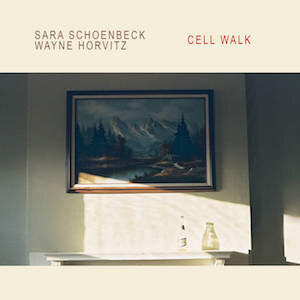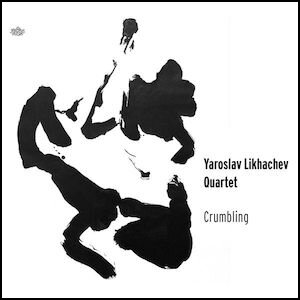Label: Songlines Recordings, 2020
Personnel - Wayne Horvitz: piano, electronics; Sara Schoenbeck: bassoon.
Pianist Wayne Horvitz and bassoonist Sara Schoenbeck have been straddling the worlds of improvised and notated music for 20 years with fruitful collaborations in several ensembles. An example is Horvitz’s Gravitas Quartet in which they join forces with trumpeter Ron Miles and cellist Peggy Lee. The two likeminded artists appear together for the first time as a duo on Cell Walk, complementing each other perfectly through the conjugation of their inherent musical voices.
Three of the 17 tracks on the album were retrieved from Horvitz’s The Snowghost Session (Songlines, 2018) and adapted to the current context. “No Blood Relation”, a lyrical, sweet-sounding effort with a breezy vibe and authentic grace is the most notable of them, but there's also “Ironbound”, here filled with revolutionary activities, and then “American Bandstand”, which concludes the session harmoniously.
“Undecided” conjures quiet, lovely impressionism in chamber music, contrasting with the jagged friction of cuts like “Twining”, where the attractive tones of the bassoon transpire mystery over a slow churn of jarring, deep piano chords. Comparatively, the artists flip their tonal range on “3 Places in Southern California”, infusing velocity in their actions with no loss of commitment in the interplay.
With disturbing simplicity and cinematic quality, Horvitz’s “The Fifth Day” includes silvery unisons and develops with iterative motifs underpinning the improvisations. This piece leads to Schoenbeck’s “Deep Well Well”, where the bassoonist makes a keen demonstration of some of the powerful extended techniques applied to the instrument. Whereas here, we find doleful cries over a piano lament, on “Sutter St.”, her circular breathing technique adds a little bit more pathos, magnifying a brooding improvised number marked by a remarkable manipulation of electronics.
References to the late groundbreaking pianist Cecil Taylor and the microtonal-inclined composer Lou Harrison are exposed on the title track and “For Lou Harrison”, respectively. The former flows in a continuous stream of melody and texture, while the latter showcases patterned pointillism and counterpoint.
Known as boundary pushers, Horvitz and Schoenbeck succeed in grabbing hold of the narrative development of each selection.
Grade A-
Favorite Tracks:
02 - Twining ► 03 - No Blood Relations ► 07 - Deep Well Well










































